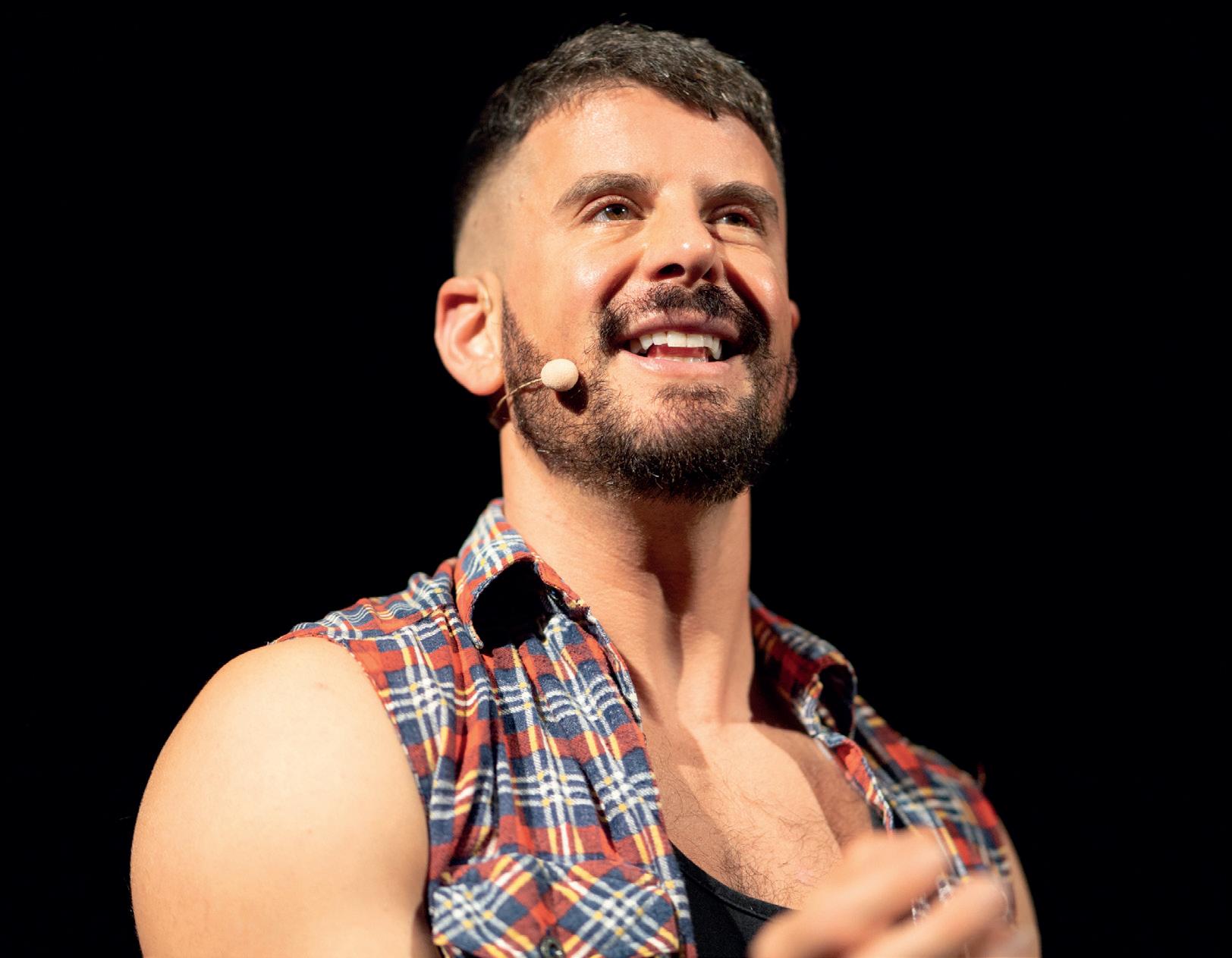
4 minute read
HERE & QUEER
Brian Butler catches up with actor/writer/director and producer Alexis Gregory, whose work is challenging, often dark, comic and relevant
The immediate feeling you get when you meet Alexis Gregory is how driven he is. He’s 100% passionate about the work he is doing. He’s lively, quick-witted, and totally committed to his vision of theatre, which is a full-on, challenging, often dark, comic, relevant world of storytelling.
At 11 Alexis was taking acting classes, and by 15 he had found an agent, while appearing with the Children’s Film Unit, and doing TV commercials.
One of his first great influences was allround theatre guy Rikki Beadle-Blair, whose company, Team Angelica, Alexis joined. This crossed over with his “coming out“. He tells me: “Coming out wasn’t one dramatic thing that happened. It was a slow, ongoing process.”
On the vexed question of whether all queer characters should be played by queer actors, Alexis says: “It’s not a black and white issue. Certain things I watch I wish a gay guy was playing the role rather than a straight actor.” But his acting CV is an outstanding list of queer characters, and he’s of the generation of Denholm Spurr, Kane Surry, Taofique Folarin and Matthew Hodgson, who have all been clear about their desire to depict queer characters and be active in promoting quality.
Rikki also encouraged the young Alexis to write. In 2012, his first play, Slap, was performed. It was staged at Stratford East and for Channel 4. He has a very clear idea that any plot should challenge, have a strong story and have a big humorous element.
However, he told me he’s working on four new plays at the moment, and he finds rehearsed readings help him to rewrite and develop his work. He also uses a dramaturg to go through his plays, suggesting things that don’t work or are missing. His play Sex/ Crime he admits to writing quickly: “I hardly remember writing it,” he says. But he’s also clear that it’s vital not to absorb too much opinion from elsewhere.
Going back to Sex/Crime - it’s the story of a fractured city where two men, A and B, meet to recreate the killings of a gay serial killer for their own pleasure and the right price. “I never intended to be in it, I hadn’t written it for myself, but Riot Act was written very much for myself,” he tells me.
Riot Act is a verbatim play, and Alexis spoke to one of the few survivors of the Stonewall Riots, actor Michael-Anthony Nozzi, who features in the first of the show’s three monologues. The other two are queer activist Paul Burston and radical drag queen Lavinia Co-op.
In the streaming phenomenon that is The Grass Is Always Grindr, he plays a villain: “I loved being the baddie – the character brought out so many different attitudes – he was a queen with such a dark side. It was an amalgamation of several people I know. I was not surprised at its success. It’s got educational messages that are dropped in subtly so you don’t feel preached at.”
“It’s hard to get funding for creative work, getting an audience and getting it on stage – it’s all hard – a major journey of a couple of years, and meanwhile it’s important not to burn out.”
I should explain The Grass Is Always Grindr to the uninitiated: it’s a hugely successful online series about the life and times of two gay men, and the chemsex underbelly of London.
Alexis was lucky to work steadily in lockdown including being the producer AND director of his own online piece, Safe – a show based on interviews with homeless, at-risk, queer young people.
On being a creator, he says: “It’s hard to get funding for creative work, getting an audience and getting it on stage – it’s all hard – a major journey of a couple of years, and meanwhile it’s important not to burn out. I’m very driven. I just want everything to be fantastic. I don’t compromise on subject matter or the truth of the information. Everything I’ve done has been risky in some way.”
His advice if confronted by his 15-year-old self? “Don’t worry so much; it’ll work out. That thing you thought was so massive is so small. You’re not fighting the world or yourself.”


